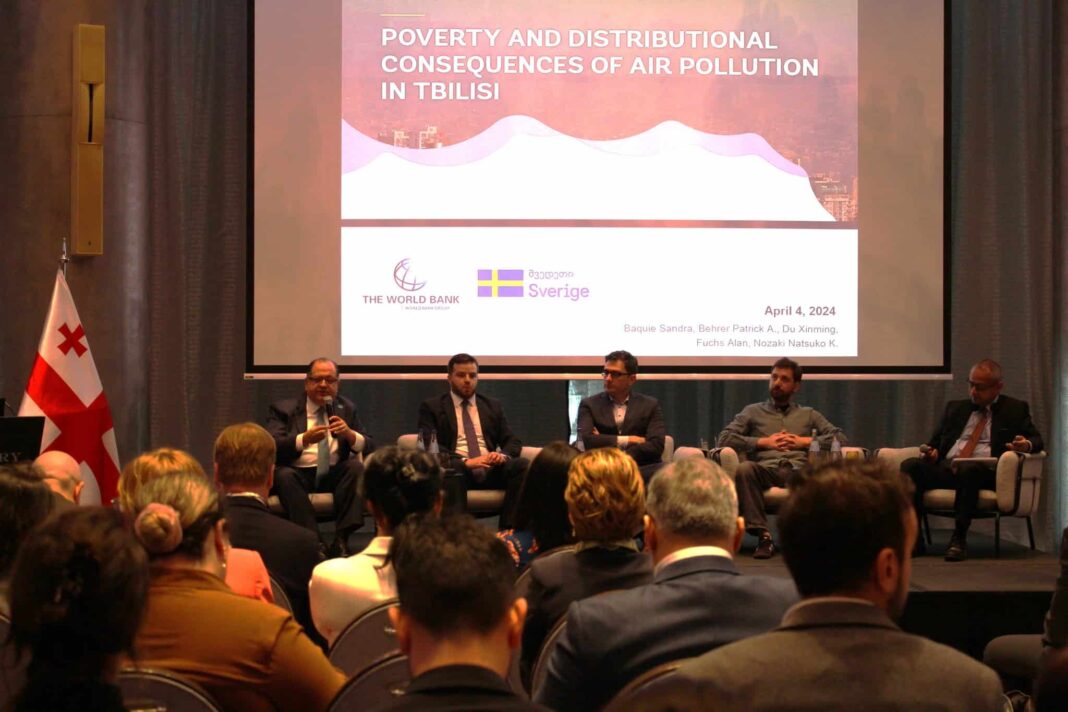Policymakers, representatives of the private sector, civil society, and academic experts from across Georgia met at the presentation on the report “Separate Consequences of Poverty and Air Pollution in Tbilisi”. They discussed ways to improve air quality in Tbilisi. The World Bank and Sweden prepared the report with due collaboration.
According to various expert studies air pollution in Capital (Tbilisi) can be reduced through enhanced monitoring of its quality, regulation of transport traffic and industrial emissions, and promotion of green technologies. The report further analyses the severe effects of air pollution on Tbilisi’s residents’ health and economic well-being.
Rolande Pryce, the World Bank Regional Director for the South Caucasus addressed the presentation participants and added “Improving air quality in Tbilisi can protect the health of its residents, especially the people who belong to the poorest and most vulnerable section of society. The policy intervention steps outlined in our new report would also contribute to Georgia’s green transition”.
Additionally the study suggested that reducing outdoor air pollution in Tbilisi is achievable through enhanced air quality monitoring and the regulation of traffic and industrial emissions. At the same time, incentivising electric vehicle use and enforcing fuel standards could also reduce traffic-related emissions while preparing Georgia for the green transition in the near future.
Similarly Luis Felipe López-Calva the World Bank Global Director for Poverty and Equity Global Practice added, “Air pollution impedes development by causing fatal illnesses to the local residents, creating harmful living conditions and destroying ecosystems which exacerbates poverty and inequality among the citizens as well”.
He added, “The World Bank is always committed to continuing to work closely with Georgia to protect the poor and vulnerable people who suffer the most from air pollution’s negative impacts.”
The report is a successful result of collaboration with the Government of Georgia and its different counterparts including the Ministry of Environmental Protection and Agriculture, the Ministry of Education, Science, and Youth, Tbilisi City Hall, the National Center for Disease Control, and the National Statistics Office, as well as local and international researchers at ISET and a think tank in Tbilisi (CRRC) with financial support from Sweden.



